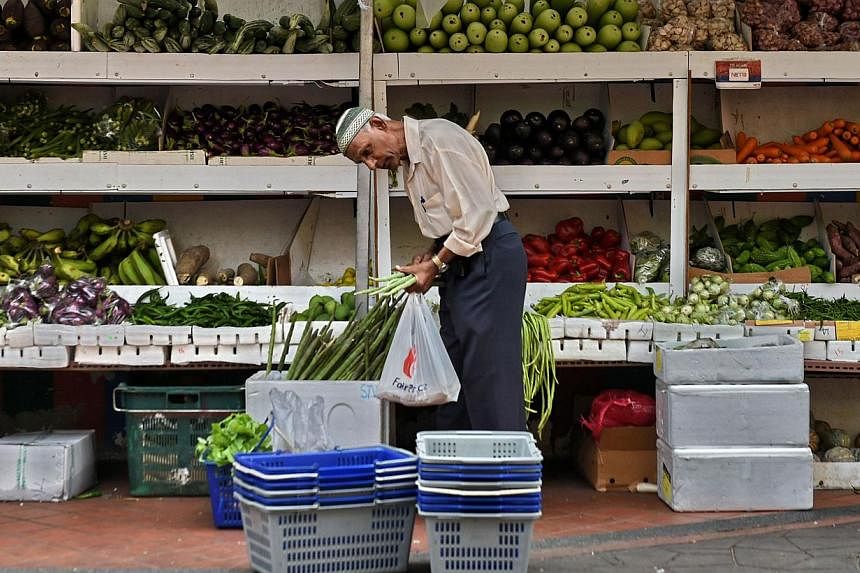SINGAPORE - Numerous food scares overseas have somewhat undermined Singaporeans' faith in imported food, a sentiment that has been a boon to farmers here whose home-grown produce is gaining traction.
New Agri-Food and Veterinary Authority figures show that the amount of locally produced leafy greens eaten here last year was 12 per cent of the total vegetable consumption - an increase from the 7 per cent in 2010. This means the long-term AVA target of raising local production of such vegetables to 10 per cent of consumption has been met.
The appetite for locally farmed eggs has grown too. Last year, 25 per cent of total egg consumption was farmed here, up from 22 per cent in 2010. The target is 30 per cent.
Here's a look at five recent overseas food scandals, which did not affect Singapore, except item No. 4.
1. Fake rice
Plastic rice laced with poisonous resin reportedly reached several Asian nations last week, including Vietnam and Indonesia. The rice was supposedly made from potatoes and sweet potatoes, with synthetic resin moulded into the shape of real rice. Such rice has been sold in China, but the recent news of its proliferation - circulated on social media platforms such as Facebook - has not been substantiated.
2. Banned dyes
Dye Dimethyl yellow, found to cause liver cancer in animals, was found in the sauce packages of instant noodles and tonnes of tofu products made by two Taiwanese food companies. The tainted food items, discovered in December 2014, were recalled by the authorities.
3. Food poisoning from berries
In 2012, frozen strawberries exported from China to Germany caused 11,000 German children to suffer from food poisoning. The Robert-Koch Institute in Germany suspected that norovirus in a bag of frozen strawberries from China was the cause. However, Chinese media repeatedly denied the claim.
4. Gutter oil
Tonnes of mooncakes, pineapple tarts, bread, instant noodles as well as steamed buns and dumplings were removed from shelves in Taiwan and Hong Kong in September 2014. They were found to have contained lard made from tainted oil collected from cookers, fryers and grease traps.
Six such food products were recalled by the Singapore authorities.
5. Bad apples
Malaysia stopped the import of two brands of apples from California in January this year due to fears that they were tainted with the Listeriosis bacteria. Consumption of food tainted with the bacteria could cause high fever, severe headache, neck stiffness, nausea and, in severe cases, death.
6. Sick pigs
Pork from pigs infected with a highly contagious virus entered the Chinese market in December 2014. The meat had come from slaughterhouses in the city of Gaoan in central Jiangxi province and had entered at least seven province. Eight officials were dismissed for selling pork from pigs that were sick, or had already died.


